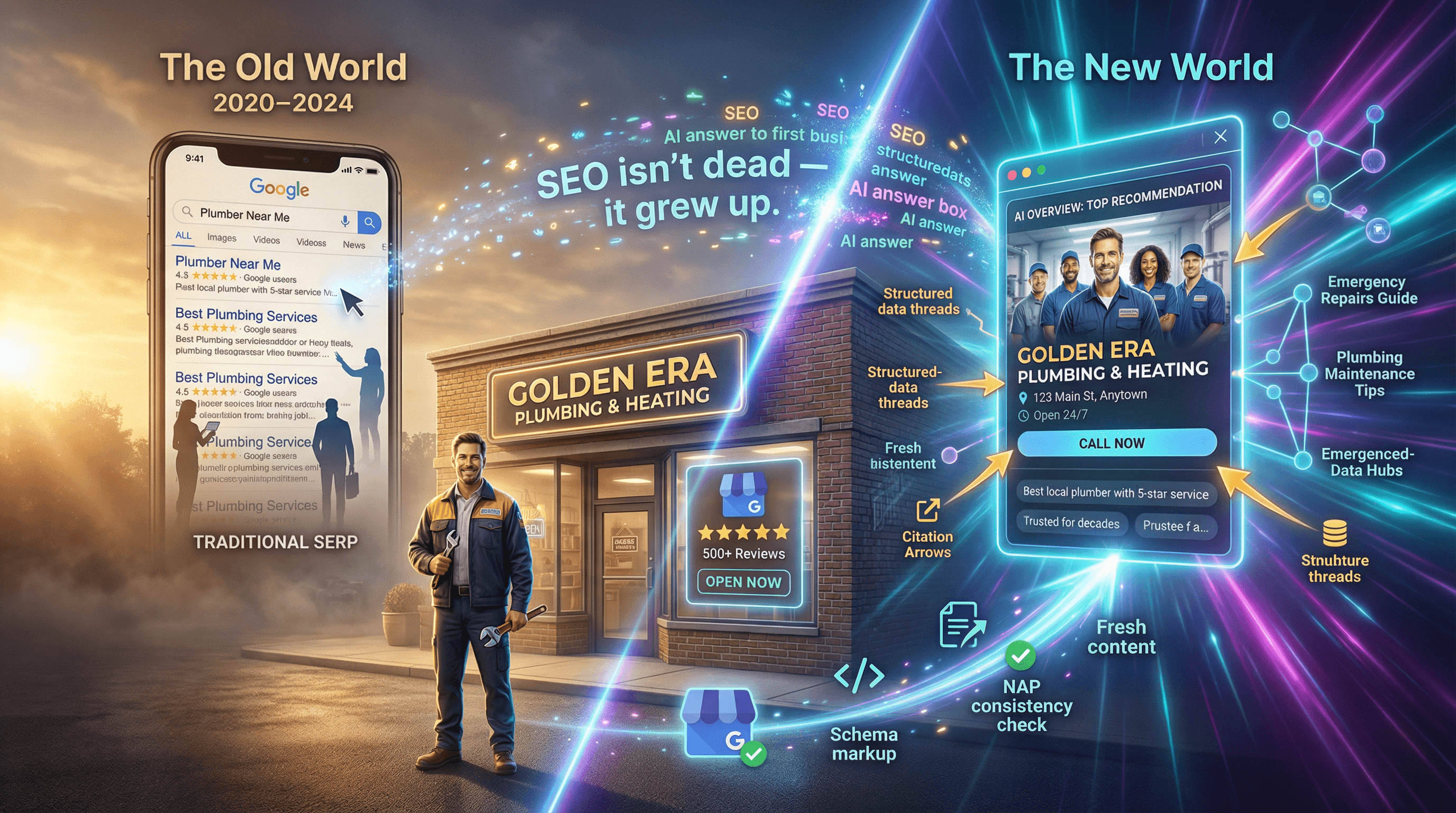Growth Partners
Stop waiting for 'perfect.' Learn why timing myths hold you back and how to thrive with imperfect action. Find your growth partner today!
We all wait for that magical moment when everything feels just right to launch a business or a project. It’s like waiting for a perfect sunny day to go outside, but the weather is always changing, right? The truth is, the idea of 'perfect timing' is a big myth. Holding out for it can actually hurt your chances more than help. Let's talk about why waiting is often the biggest mistake and how you can move forward, even when things aren't perfectly lined up.
Key Takeaways
The idea of being 'fully ready' is an illusion; most successful people start before they feel completely prepared.
Waiting too long means missing out on opportunities, facing more competition, and losing your own initial excitement.
Focus on making progress, not achieving perfection. Imperfect action is always better than no action at all.
Prioritize what truly matters over what just feels urgent to ensure you're moving towards your main goals.
Working with a Growth Partner can provide support and accountability, helping you take consistent action and redefine success beyond just long hours.
Debunking The Myth Of The 'Perfect' Launch
We’ve all been there, right? That feeling that you’re almost ready to launch your business, your product, or that big project. You just need a few more tweaks, a bit more research, maybe one more online course. It’s the siren song of perfection, and it’s a trap that catches way too many aspiring entrepreneurs. The truth is, there is no such thing as a perfectly ready moment. It’s a fantasy we tell ourselves to avoid the discomfort of putting ourselves out there.
The Illusion Of Complete Readiness
Think about it. When have you ever felt 100% prepared for something truly new? Whether it’s starting a new job, adopting a pet, or even just trying a new recipe, there’s always a learning curve. Business is no different. That feeling of absolute readiness you’re waiting for? It’s a ghost. Successful people don’t wait until they’re ready; they start, and then they become ready through the process. Waiting for all the stars to align is just a fancy way of saying you’re procrastinating.
Embracing Imperfect Action
So, what’s the alternative to waiting for this mythical perfect moment? It’s simple: imperfect action. Your first attempt doesn’t need to be flawless; it just needs to exist. Every day you delay, you’re not just losing time, you’re losing potential customers who could benefit from what you offer. You’re also letting your own enthusiasm and momentum drain away. Remember, it’s better to launch something that’s 80% there and get feedback than to hold onto a 100% theoretical perfect idea that never sees the light of day.
Here’s a simple breakdown:
Launch: Get your product or service out into the world.
Listen: Pay attention to what your early customers are saying.
Iterate: Make improvements based on that feedback.
The Cost Of Waiting Too Long
Every moment spent polishing an idea that’s not yet launched is a moment lost. The market shifts, competitors emerge, and your initial spark of excitement can fizzle out. That unique gap you identified? Someone else might fill it while you’re busy perfecting your landing page. The longer you wait, the harder it becomes to gain traction and build momentum. It’s a cycle that feeds fear and inaction, costing you not just potential revenue, but also the invaluable experience gained from real-world application.
Waiting for perfection is often just fear in disguise. It whispers that you’re not good enough, that your idea isn’t strong enough, that the world isn’t ready. But the world is always ready for something new, and the only way to prove your idea’s worth is to put it to the test.
The Hidden Dangers Of Delay

Waiting for that magical 'perfect moment' to launch your business or product sounds good in theory, but in reality, it's a fast track to missed opportunities and fading dreams. Every day you hesitate, you're not just losing time; you're actively letting potential slip through your fingers. It's like standing on the edge of a diving board, psyching yourself up, while everyone else is already swimming laps.
Market Saturation And Fading Enthusiasm
Think about it: the market isn't static. What feels like a unique opening today could be a crowded marketplace tomorrow. While you're busy polishing your business plan, someone else might be out there already serving your potential customers. This isn't about 'saturation' in a scary way, but more about how your initial spark of an idea can lose its edge if you wait too long. Your own excitement, that initial burst of motivation that got you started? It's like a battery that slowly drains the longer you delay. You can't get that energy back.
Lost Opportunities And Momentum
Momentum is everything in business. When you have a great idea, the best time to act is usually right away. I remember when I had an idea for a new service; I built it quickly and started talking about it. Within weeks, it was bringing in decent money. If I had waited, second-guessing myself, that opportunity might have vanished. The real risk isn't trying and failing; it's never giving yourself the chance to succeed at all. Every day you wait is a day someone else is learning, connecting, and growing. They're getting real-world feedback, building relationships, and moving forward, while you're still stuck in the planning phase. This is why understanding the time, cost, and quality triangle is so important for realistic goal setting.
Fear's Grip Tightens With Inaction
Procrastination often masquerades as preparation. The more you delay, the more time fear has to plant its roots. Overthinking becomes the norm, and that initial excitement gets buried under a mountain of 'what ifs.'
Identify your 'why': Remind yourself why you started in the first place.
Break it down: Large tasks feel overwhelming. Chop them into smaller, manageable steps.
Set small, achievable goals: Celebrate each small win to build momentum.
Waiting for the 'perfect' conditions is a trap. The reality is, you'll always be learning and adapting. The most successful people didn't wait until they felt completely ready; they started before they were, and learned as they went. That initial, imperfect action is what truly moves the needle forward.
So, instead of waiting for the stars to align, focus on taking that first imperfect step. It's better to be moving, even slowly, than to be perfectly still.
Cultivating A Growth Mindset
It's easy to get caught up in the idea that everything needs to be just right before you show it to the world. We tell ourselves, "I'll launch when it's perfect," or "I'll start when I know exactly what I'm doing." But honestly, that perfect moment? It rarely shows up. Instead, what if we shifted our focus from chasing an impossible ideal to embracing the journey of getting better over time? That's where a growth mindset comes in.
Progress Over Perfection
This is about understanding that doing something, even if it's not flawless, is infinitely better than doing nothing at all. Think about it: when you're learning a new skill, say, playing the guitar, you don't expect to sound like a rockstar on day one. You strum, you hit wrong notes, you practice. Business is no different. The goal isn't to be perfect from the get-go; it's to make consistent steps forward. Every small action builds momentum and teaches you something valuable.
The fear of not being good enough often paralyzes us. We see others who seem to have it all figured out and feel like we'll never reach that level. But remember, they started somewhere too, likely with a version of their work that they might even be a little embarrassed by now. That's the sign of real growth.
Learning Through Doing
Waiting for complete readiness is a trap. You'll never feel 100% prepared because there's always more to learn, more to refine. The real learning happens when you put your ideas into practice. You'll encounter challenges you didn't anticipate, discover what works and what doesn't, and gain insights that no amount of planning could provide.
Here's a simple way to think about it:
Action: You create a basic version of your product or service.
Feedback: You share it with a small group or a few early customers.
Learning: You gather their thoughts and identify areas for improvement.
Iteration: You make changes based on what you learned and repeat the cycle.
This cycle is how real progress is made. It's messy, it's iterative, but it's effective.
The Value Of Early Iterations
Your first attempts are unlikely to be your best. And that's okay! In fact, it's more than okay; it's necessary. These early versions are your learning labs. They allow you to test assumptions, validate your ideas, and get real-world data without the pressure of a massive launch.
Consider this: if you're not a little embarrassed by the first version of what you've put out there, you've probably waited too long. This doesn't mean you should release shoddy work, but it does mean you should release something. The insights gained from these early, imperfect iterations are gold. They guide your next steps, prevent wasted effort on features nobody wants, and build a foundation for something truly great.
Strategies For Taking Action Now

You know, it's easy to get stuck in the planning phase. We tell ourselves we just need a little more research, a bit more tweaking, and then we'll be ready. But honestly, that 'ready' moment? It's a mirage. The truth is, the best way to learn is by doing, and that means taking action, even when it feels a bit messy.
Prioritize Important Over Urgent Tasks
We often get caught up in the urgent stuff – emails pinging, last-minute requests, things that feel like they need our attention right now. But these urgent tasks rarely move the needle on our big goals. Instead, we need to actively carve out time for what's truly important. Think about the tasks that will actually grow your business or move your project forward, not just keep you busy. It's about making conscious choices about where your energy goes.
Here's a simple way to think about it:
Important Tasks: These are the ones that contribute to your long-term goals and vision. They might not have an immediate deadline, but they're vital for progress.
Urgent Tasks: These demand immediate attention, often due to a deadline or external pressure. They can be distractions from the important work.
The Trap: Spending all your time on urgent, but not important, tasks leaves you feeling busy but not productive.
Start Before You Feel Ready
This is a big one. That feeling of being 'fully ready' is a myth. Nobody is ever 100% prepared for something new. You'll always have more to learn, more to figure out. The trick is to start anyway. Your first attempt doesn't need to be perfect; it just needs to exist. Think of it as a starting point, a way to gather real-world feedback and learn what actually works. Every successful person you admire started somewhere imperfectly.
Train Your Brain For Productivity
Getting stuck often comes down to how our brains are wired. We can retrain them to focus on progress. When you feel that urge to tweak something endlessly or get lost in research, try a quick reset. Maybe step away for a few minutes, do some light stretching, or even just take a few deep breaths. Redirecting your focus can make a huge difference. The key is to consistently practice moving forward, even in small ways, so that taking action becomes more natural over time.
Redefining Business Success
Forget the old playbook that says success is measured solely by endless hours and sky-high profits. That’s a tired narrative. True business success today is a lot more nuanced. It’s about building something sustainable, something that contributes positively, and something that doesn’t burn you or your team out.
Quality of Hours Over Quantity
We’ve all heard the stories, the ones where entrepreneurs brag about working 100-hour weeks. Honestly, it sounds more like a recipe for disaster than a badge of honor. Spending more time on a task doesn't automatically make it better. In fact, it often means you're just spinning your wheels, getting bogged down in details that don't move the needle. The real magic happens when those hours you do work are focused, intentional, and productive. Think about it: four solid hours of deep work, well-rested and clear-headed, can achieve more than eight hours of distracted, half-hearted effort. It’s about working smarter, not just longer. This approach helps avoid burnout and actually makes your work more effective.
Avoiding the Busyness Trap
There’s a difference between being busy and being productive. So many people get caught in the trap of looking busy, thinking that’s what success demands. They’re constantly checking emails, attending pointless meetings, and generally flitting about, but are they actually moving the business forward? Often, no. This constant state of busyness can actually be a hindrance, making you a nuisance to your team and preventing you from tackling the truly important stuff. It’s easy to fall into this pattern because it feels like you're doing something, but it’s a hollow victory. We need to actively question if our actions are contributing to real progress or just filling time.
The Role of a Growth Partner
Building a successful business doesn't have to be a solo mission. Finding the right support can make all the difference. This could be a mentor, a coach, or even a peer group. These partners offer a different perspective, challenge your assumptions, and help you stay accountable. They can be instrumental in helping you see beyond the day-to-day grind and focus on the bigger picture. Having someone in your corner who understands the challenges and can offer guidance can help you redefine what success looks like for your venture and achieve your goals. They help you focus on what truly matters, not just the urgent tasks that scream for attention.
True business success isn't about outworking everyone else; it's about outthinking them. It's about creating systems and strategies that allow for focused, high-quality work, leading to sustainable growth and a more fulfilling business journey.
So, What Now?
Look, nobody has a crystal ball. That idea you've been sitting on, waiting for the 'perfect' moment? It's probably not going to magically appear. The truth is, the best time to start was yesterday, and the next best time is right now. Don't let the fear of not being ready stop you. Every successful person you admire probably felt just as unsure when they began. The real risk isn't trying and stumbling; it's never giving yourself the chance to even get started. So, take that imperfect step. Launch that thing. Make it exist, and then make it better. You've got this.
Frequently Asked Questions
Why is waiting for the 'perfect time' to start a business a bad idea?
Waiting for the perfect time is like waiting for a unicorn to show up with your business plan. It just doesn't happen! The longer you wait, the more other people might have similar ideas, and your own excitement can start to fade. Plus, you miss out on chances to learn and grow by actually doing.
What does 'imperfect action' mean, and why is it better than waiting?
Imperfect action means starting even when things aren't totally ready or perfect. Think of it as taking a small step forward, even if it's a bit wobbly. It's way better than standing still, waiting for everything to be just right, because you actually start learning and moving forward.
How can I stop myself from trying to make everything perfect before launching?
It's easy to get stuck wanting things to be perfect! Try telling yourself 'progress, not perfection.' This means focusing on getting things done and improving as you go, instead of endlessly tweaking. Remember, even a 'not-so-great' first try is better than no try at all.
What are the hidden dangers of delaying my business launch?
Delaying can be risky. The market might get crowded, your brilliant idea might not feel so fresh anymore, and your own energy can dip. You also miss out on chances to connect with customers and learn what really works. Basically, you lose momentum and opportunities.
How can I focus on what's truly important instead of just being busy?
Being busy doesn't always mean being productive. To focus on what's important, learn to tell the difference between urgent tasks (like answering emails right away) and important tasks (like working on your main business idea). Try to tackle the important stuff first, even if it feels less urgent.
What's the best way to get started if I don't feel completely ready?
The secret is to just start! You'll never feel 100% ready, and that's okay. Take that first small step, even if it feels a little scary or imperfect. You'll learn so much more by doing than by waiting. Think of it as learning to ride a bike – you have to get on and pedal, even if you wobble at first.
























































































